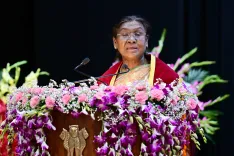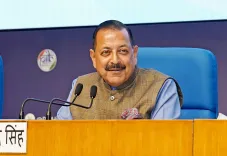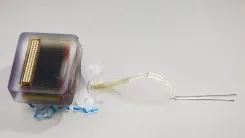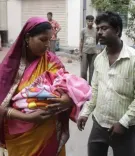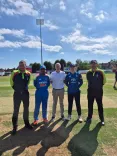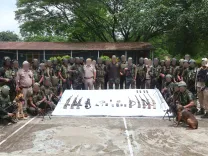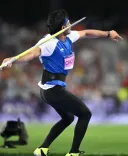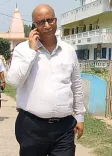How Can Young Doctors Serve Rural Areas and Tribal Communities?
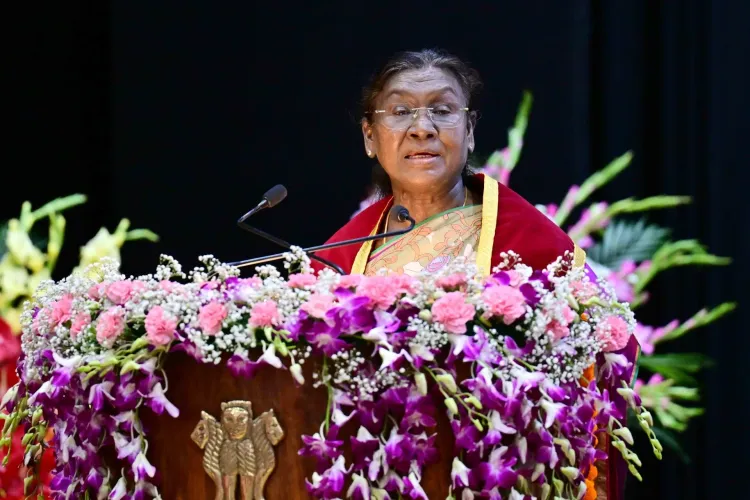
Synopsis
Key Takeaways
- Empathy is vital in medical practice.
- Young doctors should focus on underserved rural and tribal areas.
- Medicine is more than a profession; it’s a service to humanity.
- Technology can revolutionize veterinary practices.
- Students are encouraged to become entrepreneurs in animal science.
Gorakhpur, June 30 (NationPress) President Droupadi Murmu presided over the inaugural convocation ceremony of AIIMS-Gorakhpur on Monday, encouraging young physicians to focus on delivering quality healthcare in rural and tribal communities that continue to lack essential health services.
Additionally, she attended the convocation ceremony at the Indian Veterinary Research Institute (IVRI) in Bareilly on the same day.
During her address at AIIMS-Gorakhpur, the President emphasized the vital role that doctors play in societal and national development. They not only heal ailments but also establish the groundwork for a healthy society.
She highlighted the significance of empathy in the medical field, urging all participants in medical education to cultivate an environment that facilitates learning about doctor-patient interactions, the role of empathy in healing, and trust-building, alongside developing their medical skills.
The President also reminded doctors that their profession transcends mere practice; it is a service to humanity. She encouraged them to integrate compassion and honesty into their character.
Pointing out the essential part doctors have in nation-building, she stated: “Healthy citizens can become partners in the progress of the nation.”
She called upon young doctors to serve those parts of society that are most in need of medical care.
She noted that numerous rural and tribal regions still suffer from inadequate health services for underprivileged communities and expressed her confidence that the new doctors would address this issue and strive to provide healthcare to these areas and populations.
At IVRI Bareilly, the President remarked that the idea of 'one health' is becoming increasingly significant worldwide.
“This concept recognizes the interdependence of humans, domestic and wild animals, plants, and the environment. We must prioritize animal welfare,” she stated.
The President asserted that as a leading veterinary institution, IVRI has a crucial role to play, especially in controlling and preventing zoonotic diseases.
She noted that advancements in technology could also revolutionize veterinary medicine and care.
“Technology can empower veterinary facilities nationwide. Innovations such as genome editing, embryo transfer techniques, artificial intelligence, and big data analytics can transform this field,” she urged, appealing to institutions like IVRI to explore affordable and indigenous treatment options and nutrition for animals.
Furthermore, she encouraged IVRI students to pursue careers focused on the treatment and welfare of innocent and voiceless animals.
She motivated students to consider entrepreneurship and to create start-ups in various animal science sectors.
President Murmu concluded by stating that through these efforts, they can not only provide employment for those in need but also contribute to the nation's economy.

